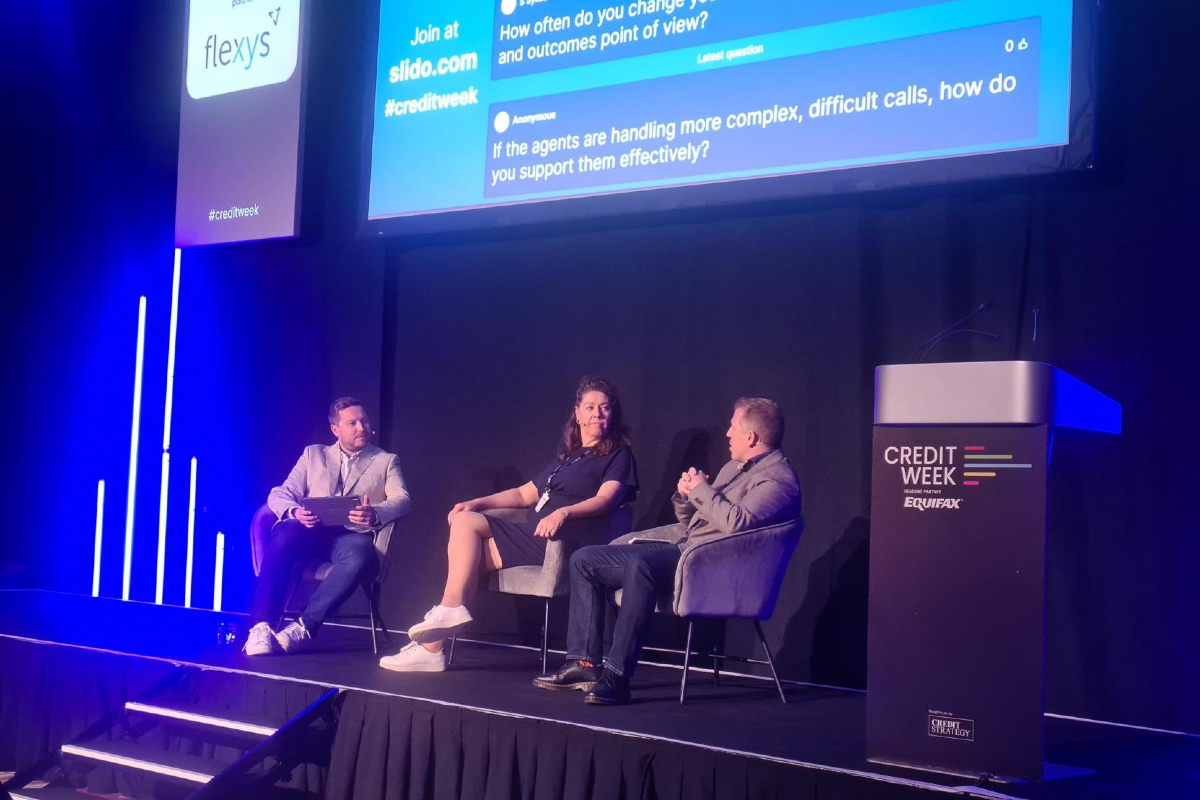Dear visitor,
You're reading 1 of your 3 free news articles this quarter
Register with us for free to get unlimited news, dedicated newsletters, and access to 5 exclusive Premium articles designed to help you stay in the know.
Join the UK's leading credit and lending community in less than 60 seconds.
Overheard at Credit Week..DAY TWO
Credit Week, headline sponsored by Equifax, continued into its second day, tackling the key themes for the financial services industry, including striking the right balance between leveraging new technologies and maintaining the human touch in customer experience as financial pressures intensify.

Group Editor of Shard Financial Media, which encompasses the Credit Strategy, Reward Strategy, TRI and FSE brands.
 Michal Lodej
Michal LodejGroup Editor of Shard Financial Media, which encompasses the Credit Strategy, Reward Strategy, TRI and FSE brands.
"Jobless growth"
The headliners for day two of Credit Week were the chief risk officer of the World Bank Lakshmi Shyam-Sunder and Sir Vince Cable.
Lakshmi, among other things, outlined what she is seeing the global economy - stating that, while we are seeing better growth then was initially expected, it’s not currently at the levels that are needed for people to prosper.
She also outlined the concept of "jobless growth", something that is experienced in countries like India, with this being generated by businesses utilising tools such as AI and technology.
Sir Vince, meanwhile, explained how the global economy experienced something of a "heart attack" due to the 2008 global financial crisis, after what had been 60 to 70 years worth of growth. And we in the UK haven’t really recovered, thanks to things such as the pandemic, the geopolitical tensions we’re currently experiencing - as well as Brexit reducing business investment.
"Back yourself more"
A truly illuminating session during the day was one focused on life as a risk manager, which brought together the likes of Bruce Fletcher, Sue Poot, Ruth Anderson and Mark Thundercliffe to discuss how their profession has changed over the years and to impart their wisdom to the packed out audience in attendance.
One of questions asked was what advice would you give your 20-year-old self. Among the answers included being in a work environment where mistakes are ok and their is room to learn, to make sure that you’re looking and asking for help whenever you need, and to make sure you back yourself, even if you are challenging senior people in your organisation.
Proactive support for consumers
As many households face mounting financial strains, lenders detailed proactive measures to support customers before arrears occur. HSBC’s Nick Larkins emphasised early intervention policies and open communication to help rearrange finances. At NatWest, Chris Laverick reported over 1,000 customers moved out of early arrears stages last year through efforts like fee suppression, advice referrals, and better spending data.
Jamie Place of Everyday Loans highlighted maintaining close lender-customer relationships even as digital capabilities evolve. A Nationwide panel kicked off by Matt Jones differentiated generative AI types and stressed proper safeguards.
Iain Brown of SAS positioned generative AI to synthesize information and support optimal call handler decisions while requiring human involvement. Shannon Faulkner of TheBlueDoor advised understanding the specific problem to leverage generative AI’s benefits, which financial services already use for fraud detection.
While new technologies advance, speakers emphasized skilled personnel’s vital role. Richard Mansell of Concentrix Catalyst warned against over-investing in technology at the expense of Collections talent. As inquiries grow more complex, enhanced training becomes crucial.
At Credit Week, the industry showcased its drive to enhance customer experience efficiently through innovative technologies balanced with empathetic human interactions. Speakers consistently highlighted robust training and the human element as key to navigating heightened financial pressures and customer expectations.
Stay up-to-date with the latest articles from the Credit Strategy team
READ NEXT
UK government grapples with bid-rigging risks as CMA trials AI tool
Get the latest industry news







